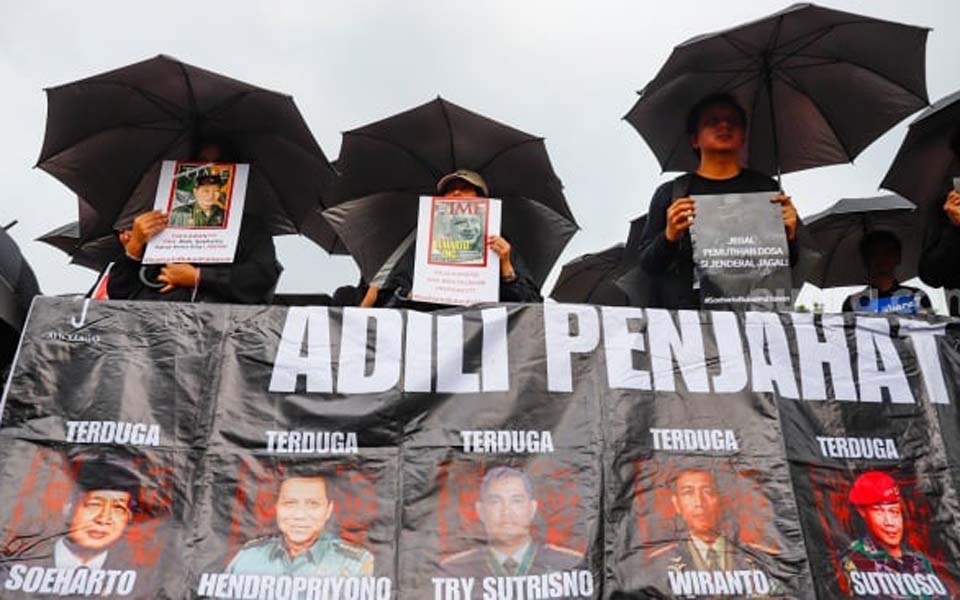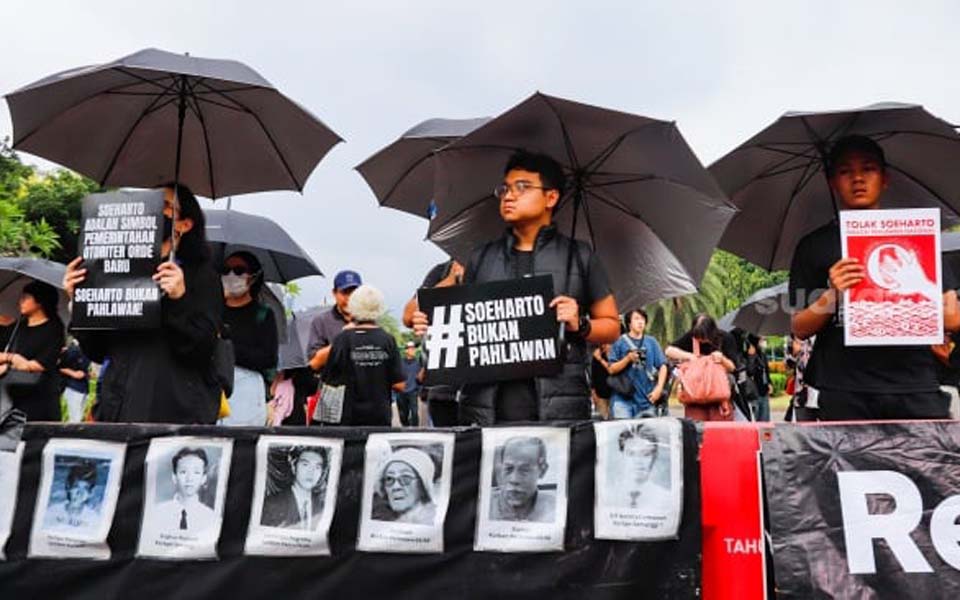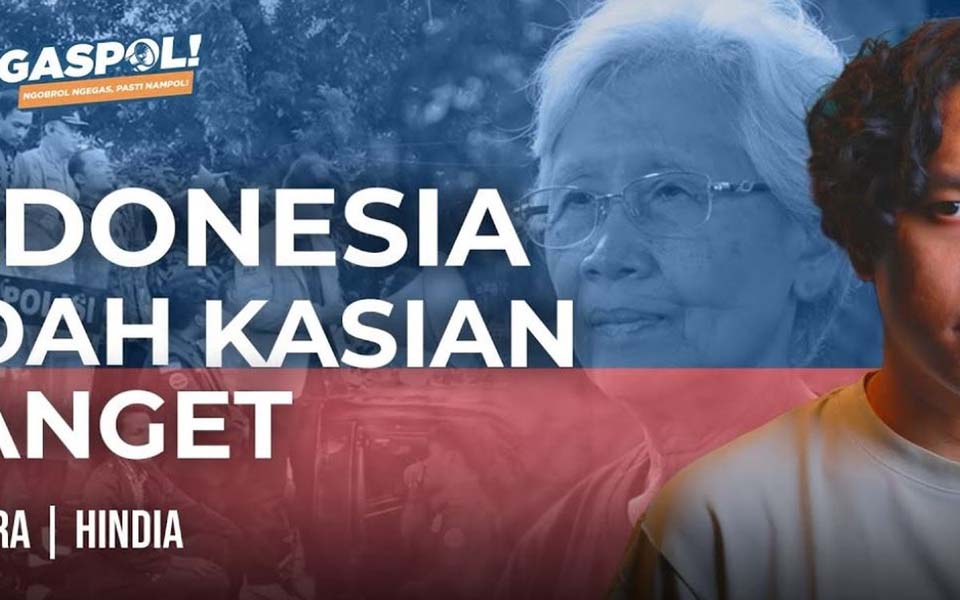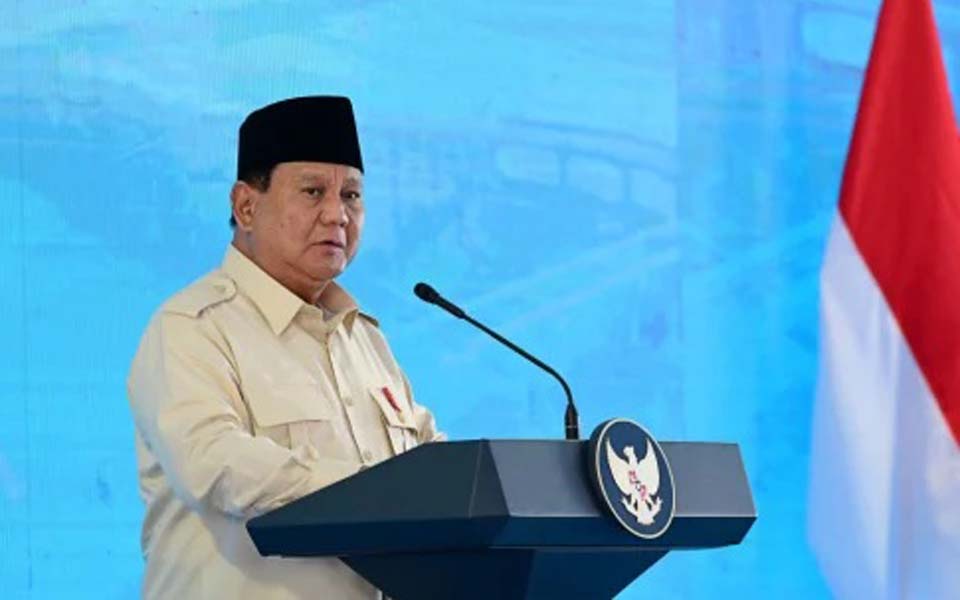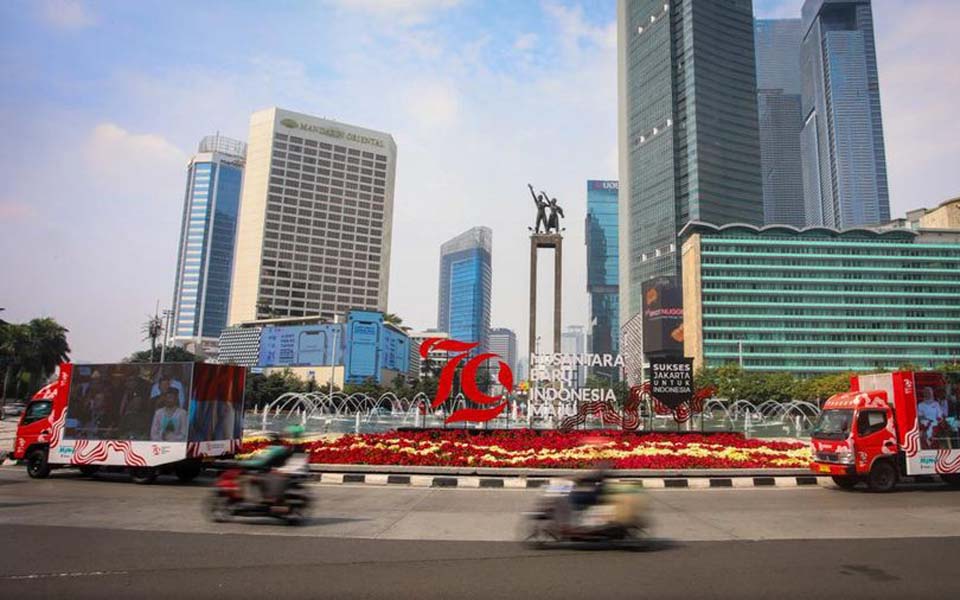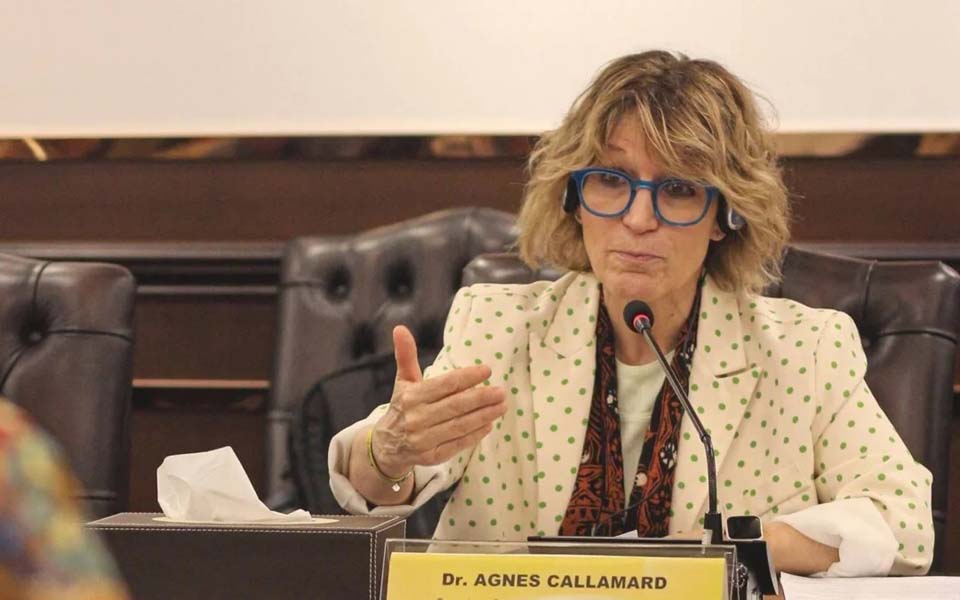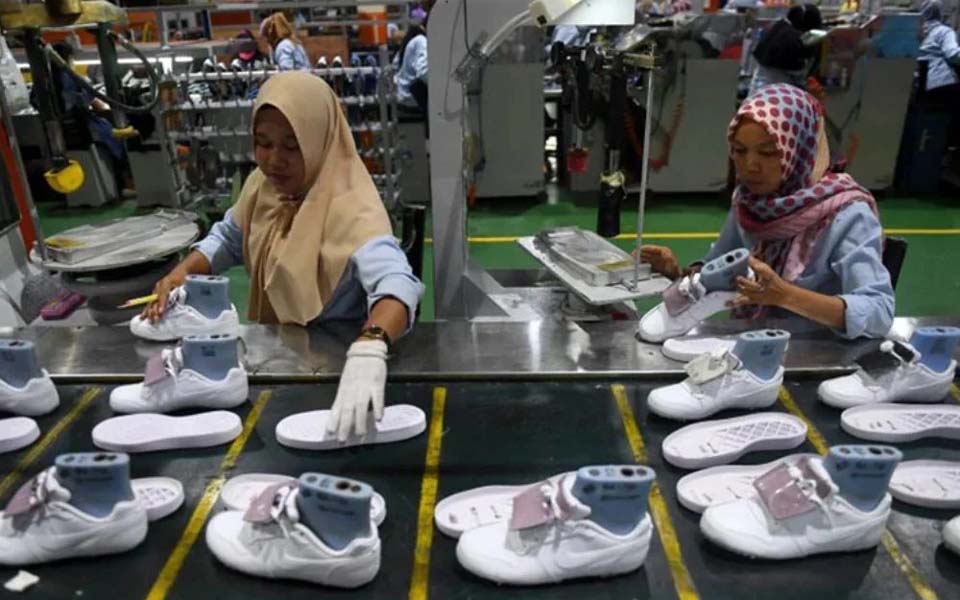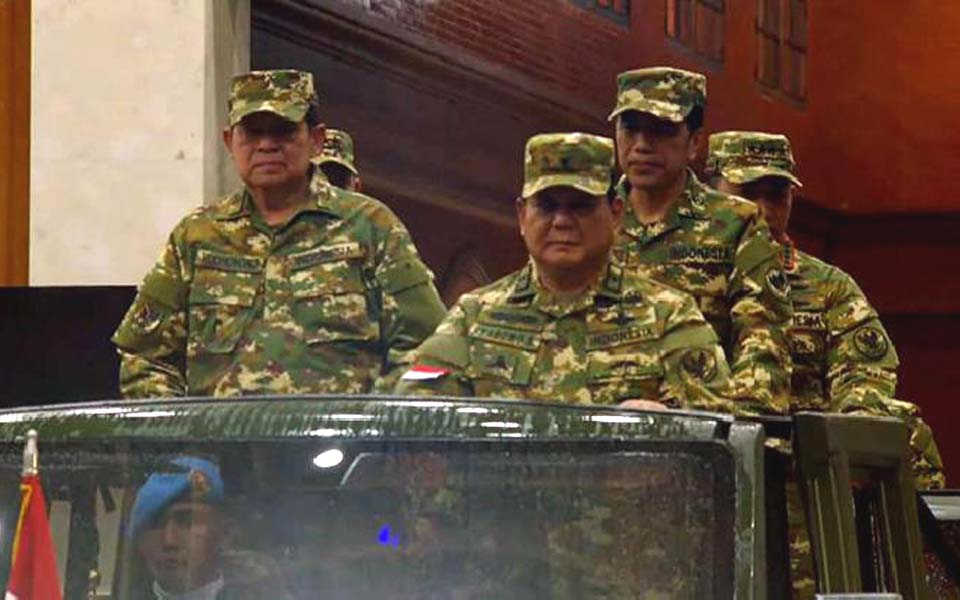Jakarta – The Civil Society Coalition has provided a report on the resolution of cases of human rights violations during the first 100 days of President Joko “Jokowi” Widodo’s second term in office.
The Commission for Missing Persons and Victims of Violence (Kontras) believes that the Widodo administration has not prioritised the resolution of human rights violations but has instead perpetuated impunity.
As of 100 days into Widodo’s second term in office, his administration has not resolved a single human rights (HAM) case.
“Instead what has happened is impunity in resolving HAM cases, with each day that passes the government further delegitimises human rights through its decisions and policies”, said Kontras Human Rights Defense Division head Raden Arif.
Arif highlighted the fact that the government is instead prioritising infrastructure development and robbing communities of their livelihoods. In addition to this, the state’s efforts to facilitate investment, said Arif, have in fact restricted civil rights and freedom of expression.
“Demonstrations are now seen as obstructing the entry of investment, yet demonstrations are one of the ways for citizens to convey an opinion and express their political position”, said Arif.
Kontras believes that the government is only developing policies which benefit the private sector. The Draft Omnibus Law, the abolition of building permit (IMB) and AMDAL (Environmental Impact Analysis) requirements are evidence that the government is not serious about dealing with past and present human rights cases.
On the other hand, the government has instead decided to deal with cases of human rights violations through non-judicial mechanism. Kontras believes this conflicts with the mandate of the law because reconciliation and resolving human rights cases must be done though legal channels.
“The government has instead taken a short cut through plans to revive the Truth and Reconciliation Commission (KKR) which is actually a reflection of an error in interpreting Law Number 26/2000 [on a Human Rights Court], cases of HAM violations must be pursued through legal channels”, said Kontras International Advocacy Division head Fatia Maulidiyanti.
Kontras also deplores a statement made last year by Coordinating Minister for Security, Politics and Legal Affairs (Menko Polhukam) Mahfud MD who said that there have been no human rights violations under the Widodo administration. According to Maulidiyanti, Mahfud’s statement is totally wrong and hurts victims.
“We can define from this that in truth the state has never sided with the victims”, she said.
National Security Council
There is also concern that the National Security Council (DKN) will threaten the civil society movement. Indonesian Legal Aid and Human Rights Association (PBHI) General Secretary Julius Ibrani says that the formulation behind the DKN will in fact negate the civil society movement.
“The lack of public participation in the formation of the DKN means negating civil movements, we all know that the [the government] defines civil movements as a form of security disturbance, this is clearly dangerous”, said Ibrani during a public discussion titled Problems in the Formation of the National Security Council, at the National Human Rights Commission (Komnas HAM) on Monday January 27.
Komnas HAM member Choirul Anam took the opportunity to question the urgency of forming the DKN through a presidential regulation. According to Anam, there other institutions that already exist which carry out the function of coordination and evaluations which will later be done by the DKN.
“What is the urgency of the DKN? We have the Menko Polhukam whose task is as a coordinator and to also provide advice to the president on issues of security, so what has the DKN been formed for”, asked Anam.
Anam believes that the formation of the DKN will also restrict mobility of civil society which should participate in formulating policies. So far, the proposal for the formation of the DKN has only been discussed at the executive level. This situation, according to Anam, in fact inhibits efforts by society to convey its aspirations.
“So far the proposal for the DKN has not involved civil society, this means that there are restrictions on the public’s rights”, he said.
Aside from this, Anam believes that the terminology used in the formation of the DKN is wrong. The term public safety [Eng] is defined as “public security” instead of “public safety”. This misperception will later allow for continued human rights violations.
“It’s terminology is even wrong, they define public security as meaning if there are things with obstruct the national interest, yes, this will become a threat, this is clearly wrong, will actions by people who take to the streets will later be seen as a threat to the public as well?”, he asked. (mel/pmg)
[Translated by James Balowski. The original title of the article was “100 Hari Kerja Jokowi Mengingkari Penuntasan Pelanggaran HAM”.]






